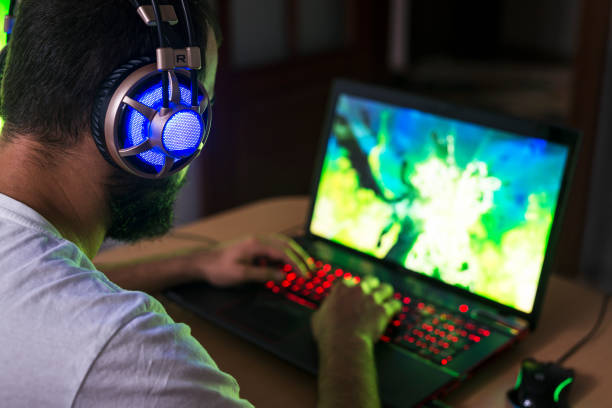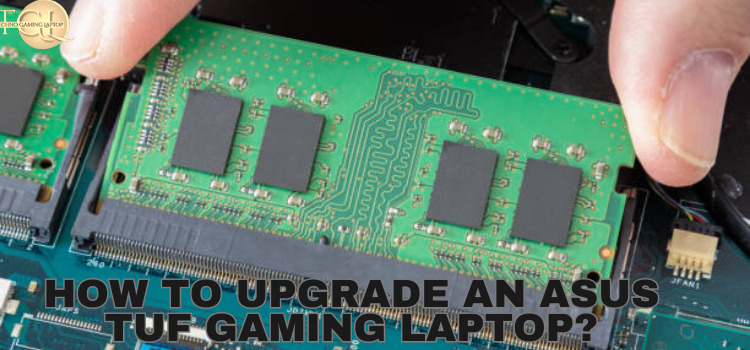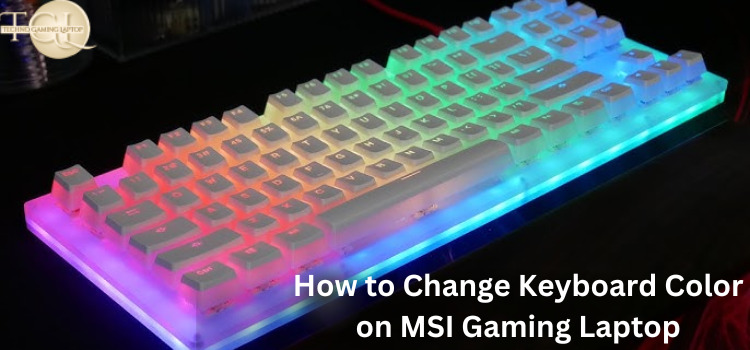Gaming laptops are powerful machines, but they can get really hot. This happens because they have strong parts that create a lot of heat.
Typically, temperatures above 90°C (194°F) are concerning for gaming laptops, potentially leading to performance degradation or hardware damage.
We need to know: How hot is too hot for a gaming laptop? We’ll look at what causes the heat and ways to keep laptops cool, even when playing intense games.
Gaming laptops tend to heat up, and there’s a reason for that. Internal components cause the heat. But why its too warm? We’ll discover the optimal temperatures. There exist methods to prevent laptops from becoming too hot during lengthy game plays. We aim to ensure they operate seamlessly without exceeding a certain heat limit.
How Hot Is Too Hot For a Gaming Laptop? Exploring Safe Temperatures
Visualize a digital battlefield gaming laptops get so hot, where your gaming laptop transforms into the arena and its processor CPU and GPU stand as valiant soldiers battling for supremacy. Just as the battle’s fervor escalates, so does the heat that arises.
Gaming laptops are typically designed to endure temperatures as high as 90 degrees Celsius perfectly normal for a laptop, yet use the laptop consistently operating within this range activates an innate safeguard mechanism called thermal throttling. This self-protective measure curtails clock speeds to ensure safe thermal levels, albeit at the cost of impacting your overall gaming immersion.
Reasons Why Your Gaming Laptop Is Overheating
Gaming laptops are designed for power and performance, can sometimes become victims of their own prowess and gaming laptops get too hot. Several factors contribute to this heat surge, each playing a distinct role in pushing high temperatures to the brink. Here’s a closer look at what might be behind use your laptop overheating blues:
Laptop is getting hot due to inadequate cooling system
Gaming laptops, despite their sleek designs, often struggle with inadequate cooling systems. The confined spaces within these devices limit airflow, leading to poor hot air. The result? The internal components heat up rapidly, causing the laptop to get run hotter.
Laptop is running hot intense gaming sessions
Modern games are like power-hungry monsters that demand a lot from your CPU and GPU. As you dive into intense gaming sessions, these components work tirelessly, stress on the CPU causing potential damage to your laptop may get very hot to a blazing furnace. This lot of heat is too hot for a laptop and buildup contributes to the laptop’s maximum temperature and laptop doesn’t work properly
Laptop for gaming get warm due to insufficient air circulation
Have you ever placed your gaming laptop on a soft surface like a bed or a couch? This innocent act can impede the flow of air through the laptop’s vents, obstructing proper laptop’s cooling. As a result, the internal components get so hot struggle to maintain safe temperatures.
Dust Accumulation
Dust is the silent adversary of electronics. Over time, it accumulates within your laptop, forming a barrier that inhibits airflow and hampers the heat dissipation process. The accumulation of dust on cooling fans and heat sinks can cause the laptop to overheat.
Overclocking
The temptation to squeeze every ounce of performance from your gaming laptops tend to overclocking. gaming laptop can become hot While this can boost capabilities of laptop for gaming , it also significantly increases heat generation. Overclocking pushes the components beyond their intended limits, leading to higher temperatures and potential overheating causing your gaming experience poor
How to Keep Your Gaming Laptop Cool
Maintaining your gaming laptop’s chill requires strategic steps. Elevate it for better airflow, employ cooling pads with fans to dissipate heat, and ensure an optimal room temperature 100 degrees. Regular cleaning prevent overheating which can hinder cooling. Undervolting is an advanced method to decrease heat while keeping performance intact. To sum up, these steps ensure your gaming laptop stays cool and performs at its best.
Elevated Surface
Place your laptop to the rear of your laptop is a simple yet effective way to enhance airflow. This minor adjustment allows for better ventilation, reducing the risk of overheating during prolonged usage.
Laptop Cooling Pad
A laptop cooler pad is like a magical elixir for your gaming laptop. using a cooling pads equipped with built-in fans that provide extra cooling to the underside of your laptop and keep it cool. They effectively prevent your laptop from overheating preventing it from accumulating within the device and improve your gaming experience
Optimal Environment
The temperature of your surroundings plays a pivotal role in your laptop’s thermal management. Ensure that you’re using your gaming laptop in a room with a reasonable temperature, avoiding additional stress on its cooling system.
Regular Cleaning
Make it a habit to periodically clean your laptop’s vents and fans. Removing dust and debris from these areas ensures that air can flow freely, preventing heat buildup.
Undervolting
This advanced technique involves adjusting the voltage supplied to your CPU and GPU inside the laptop. By lowering these voltages, you can reduce heat generation without compromising performance.
What Can You Do to Prevent Your Gaming Laptop From Overheating
Shielding your gaming laptop from overheating demands proactive measures. Begin by managing background processes and closing unnecessary apps to alleviate CPU load. Adjust in-game settings to ease gpu temperatures and employ cooling solutions like pads and external fans.
Keep drivers up to date for optimized performance and cooler operation thus these causing your laptop to overheat. Regularly monitor temperatures with specialized software to spot potential issues. Summing it up, these strategic steps form a formidable defense against gaming laptop overheating.
Manage Background Processes
By closing unnecessary background applications, you alleviate the burden on your CPU, reducing heat generation. This simple step enhances overall performance and preserves a cooler environment for your gaming laptop.
Reduce Game Settings
If you want gaming laptops last so Lowering in-game graphics settings offers a dual advantage – it not only enhances your gaming laptop’s performance but also curbs the workload on your GPU and damage to the cpu. As a result, laptop will get lower temperatures during those intense gaming sessions, ensuring a smoother experience.
Use Adequate Cooling
Embrace external cooling solutions like cooling pads and fans. These accessories play a pivotal role in heat dissipation, particularly during extended gaming sessions. By expelling excess heat, they help maintain a balanced temperature within your gaming laptop.
Update Drivers
Ensuring your graphics card and laptop hardware are up to date is more than just a routine task. It directly impacts performance and heat generation. Outdated drivers can lead to inefficiencies and increased temperatures, while updated drivers optimize both performance and temperature management.
Monitor Temperatures
Staying proactive with temperature monitoring pays dividends. Specialized software allows you to keep a real-time watch on your gaming laptop’s temperature. This vigilance empowers you to detect potential overheating issues promptly and respond with immediate action.
Benefits of Cooling Down Your Gaming Laptop
Unveiling the advantages of maintaining optimal temperatures rise for your gaming laptop reveals a world of benefits. Consistent and cooler operating temperatures ward off premature wear and tear. Second, you’re rewarded with unwavering performance.
Avoiding thermal throttling keeps clock speeds stable, ensuring your laptop delivers its best. Third, the risk of hardware damage diminishes significantly. Cooler temperatures protect sensitive parts like CPUs and GPUs from potential harm. Lastly, a comfortable gaming experience unfolds, as reduced heat means a quieter laptop and less discomfort during long gaming sessions.
Extended Lifespan
By maintaining lower temperatures, you’re effectively extending the lifespan of your gaming laptop. Heat stress can lead to premature aging of internal components, resulting in a shorter operational life.
Consistent Performance
Overheating can trigger thermal throttling, leading to reduced clock speeds and performance drops. Keeping your laptop cool ensures a consistent and smooth gaming experience.
Lowered Hardware Risk
Excessive heat is detrimental to the delicate internal components of your laptop. By managing temperatures, you minimize the risk of permanent damage to crucial elements such as the CPU and GPU.
Enhanced User Comfort
A laptop that runs cooler is more comfortable to use, especially during extended gaming sessions. Say goodbye to uncomfortable heat radiating from your device.
Keep my laptop cool Improved Gaming Experience
Lower temperatures translate to lower fan noise, creating a more immersive gaming environment. Additionally, consistent performance ensures that you can fully enjoy your gaming adventures.
Conclusion
Gaming laptops, a testament to technological marvel, provide a portable gateway to immersive realms and exhilarating escapades. Yet, this power carries a dual edge, as heat emerges laptops run hotter By comprehending the intricacies of overheating, adopting savvy cooling tactics, and embracing proactive measures, you fortify your gaming laptop’s prowess, longevity, and overall experience around your laptop.
In the gaming realm, conquering both virtual trials and the heat challenge is paramount. Thus, the journey of “How Hot Is too Hot For A Gaming Laptop?” takes on a transformative path, ensuring optimal performance amidst the sizzling realm of gaming.
Frequently Ask Questions
Q1. Do gaming laptops overheat easily?
Answer: Yes, gaming laptops can tend to get overheat easily, especially during intensive gaming sessions or when the cooling system is insufficient
Q2. Gaming Laptop CPUS Run Hot – But how hot is too hot?
Answer: Gaming laptop CPUs often run hot, but run at temperatures beyond 90 degrees Celsius can be concerning also damage CPU.
Q3. Why does my CPU temperature reach 90 degrees Celsius while playing when the laptop is connected to charging?
Answer: Intense gaming on a charging laptop can push CPU usage, causing temperatures to hit 90 degrees Celsius due to increased power consumption and performance demands.
Q4. What is the maximum safe temperature of a laptop for long gaming sessions?
Answer: The maximum safe temperature for long gaming sessions is typically around 85-90 degrees Celsius for both CPU and GPU.
Q5. What are safe temperatures for a gaming laptop?
Answer: Safe temperatures for a gaming laptop typically range from 70 to 85 degrees Celsius for the CPU and up to 80 degrees Celsius for the GPU.
Reference
January 30, 2023 By Martin Hayes , Gaming Laptops & Overheating: Why Do Gaming Laptops Get So Hot?
APR 19, 2023 ,By Aaron Ritchie, What is the average gaming laptop temperature?





